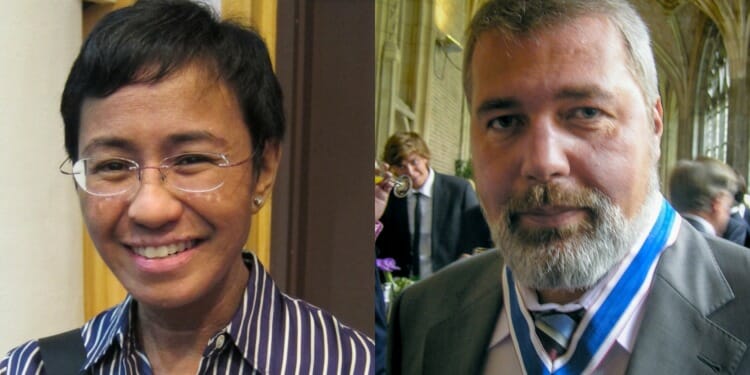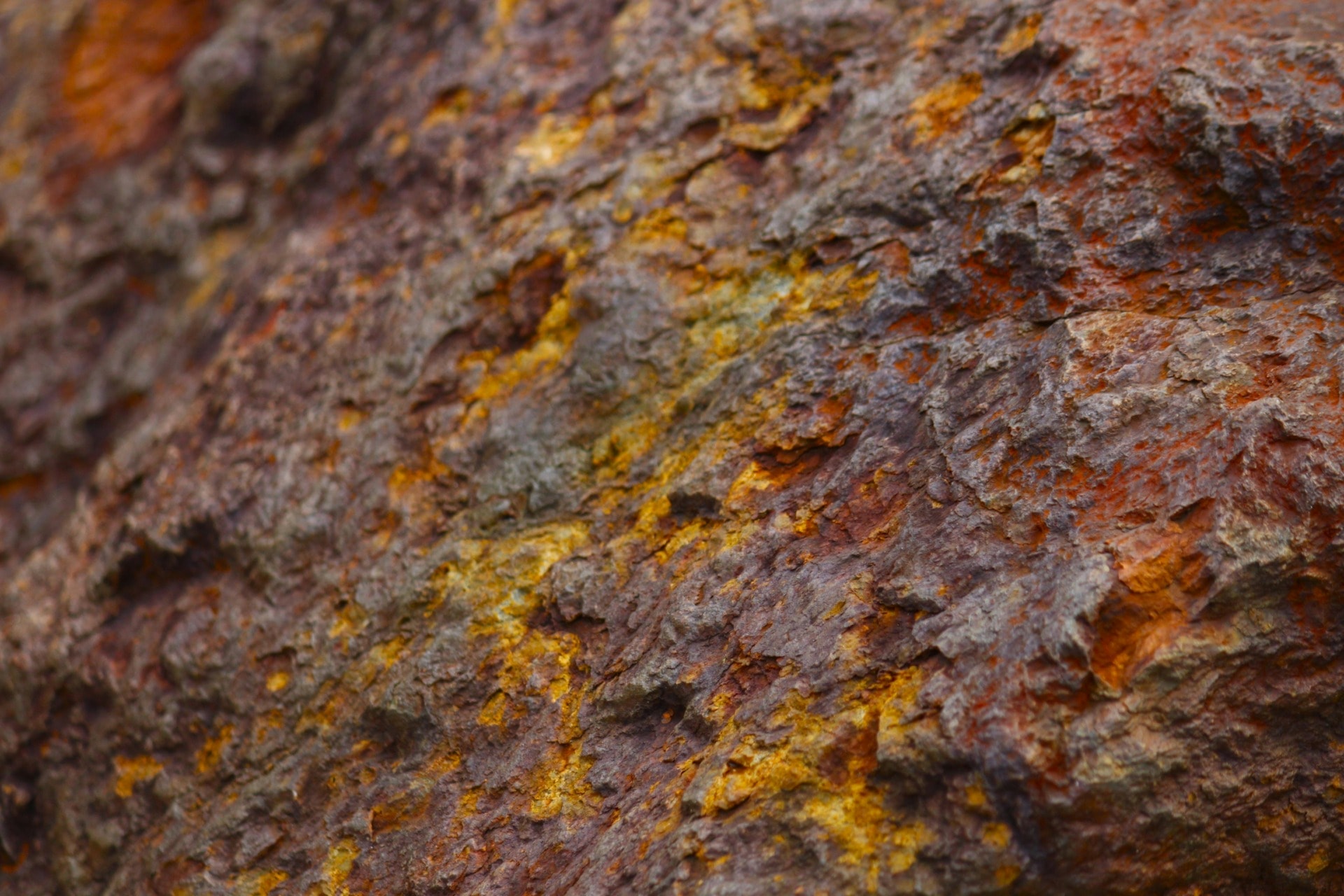Today, the Norwegian Nobel Institute in Oslo, awarded the Nobel Peace Prize 2021 jointly to Maria Ressa of the Philippines and Dmitry Andreyevich Muratov of Russia “for their efforts to safeguard freedom of expression, which is a precondition for democracy and lasting peace.” In short, the Nobel Peace Prize went to freedom of the press fighters.
The prize is the first Nobel Peace Prize for journalists in 86 years since it was won by the German Carl von Ossietzky in 1935 for revealing his country’s secret post-war rearmament programme.
Chairwoman Berit Reiss-Andersen of the Norwegian Nobel Committee told reporters that the two won the award “for their courageous fight for freedom of expression” in their countries, adding that “At the same time, they are representatives of all journalists who stand up for this ideal in a world in which democracy and freedom of the press face increasingly adverse conditions. Free, independent and fact-based journalism serves to protect against abuse of power, lies and war propaganda.”
Maria Ressa is the first winner of a Nobel prize in any field from the Philippines. A 58-year-old journalist with 35 years of experience, she is currently free on bail as she appeals a six-year prison sentence for a libel conviction last year. After sharing the Prize with Russian investigative journalist Dmitry Muratov, she expressed “shock and disbelief,” saying, “It’s never been as hard to be a journalist as it is today.” Even harder than her years as a war correspondent, she said.
There is no doubt that she has been tested by years of legal cases in the Philippines brought by the authorities over the work of Rappler, an investigative website that she launched in 2012 after working for CNN as bureau chief in Manila and Jakarta. “You don’t really know who you are until you are forced to fight for it.” And now, everyone in the world knows that Duterte has brought blood in the streets and Maria Ressa is the one who has helped expose his doings with her relentless investigative work, notably into large-scale killings during a police campaign against drugs. In 2018, she was one of several journalists named Time Magazine Person of the Year for fighting for media freedom, and her legal battles have shone a light on the harassment of the media in the Philippines, a country that had once been a flagship for press freedom in Asia.
The other award winner, Dmitry Muratov, 59 years old, editor-in-chief of the Russian investigative newspaper Novaya Gazeta, is the first Russian to win the peace prize since Soviet leader Mikhail Gorbachev in 1990. Gorbachev himself was associated with Novaya Gazeta, contributing some of his Nobel prize money to help set it up after the collapse of the Soviet Union, in 1993.
Muratov immediately dedicated his award to six contributors to his Novaya Gazeta newspaper who had been murdered for their work exposing human rights violations and corruption, noting that he got the award because it was never handed posthumously. And he recited the names the reporters and activists whose portraits hang in his newspaper’s Moscow headquarters:
“Igor Domnikov, Yuri Shchekochikhin, Anna Politkovskaya, Stas Markelov, Anastasia Baburova, Natasha Estemirova – these are the people who have today won the Nobel Prize,” he said.
Most of us can remember when Politkovskaya and rights activist Estemirova, who had both angered the Kremlin with reports from Chechnya, met their chilling end. Politkovskaya was gunned down in her apartment stairwell in 2006 on Putin’s birthday. Estemirova was abducted from her home in the Chechen capital Grozny and murdered in 2009.
Muratov plans to use the money to help defend reporters under pressure. He told media outside his newspaper’s central Moscow offices: “I don’t know how this will affect the censorship that is being imposed,” referring to the fact that some journalists are forced to register as foreign agents. “…But I can say one thing for sure,” he added, “we will sit down on Monday and have a think about how to divide this prize.” Part of his winnings would be used to support unspecified independent media, he said.
Muratov also said he would have given the Nobel prize to Alexei Navalny, President Vladimir Putin’s fiercest domestic critic, who was jailed this year over trumped-up parole violations, he said, designed to curb his political ambitions.
The Kremlin congratulated Muratov. “He persistently works in accordance with his own ideals, he is devoted to them, he is talented, he is brave,” said spokesman Dmitry Peskov. Dan Smith, director of the Stockholm International Peace Research Institute told Reuters, “We normally expect that greater visibility actually means greater protection for the rights and the safety of the individuals concerned.” One may hope he is right.
The Nobel Peace Prize will be presented on Dec. 10, the anniversary of the death of Swedish industrialist Alfred Nobel, who founded the awards in his 1895 will. And this time, nobody can argue that the Nobel Peace Prize was not fully merited. Calls for reforming the Peace Prize have been made, arguing that “Neither intra-European politics, ethnicity, nor the “promise” of doing good in the future, should determine the awardee for the Peace Prize.” This is a clear case when it was not Euro-centric or any of the other criticisms leveled at it.
Featured Image: Maria Ressa and Dmitry Muratov






